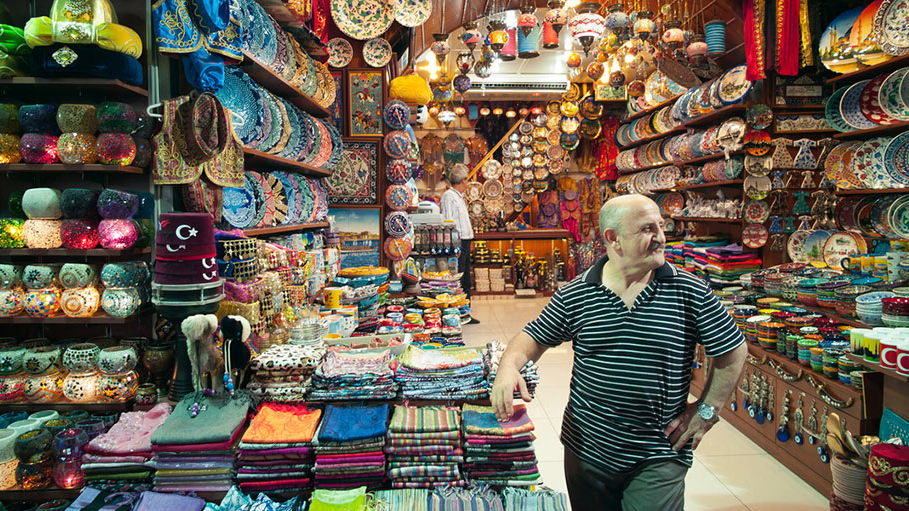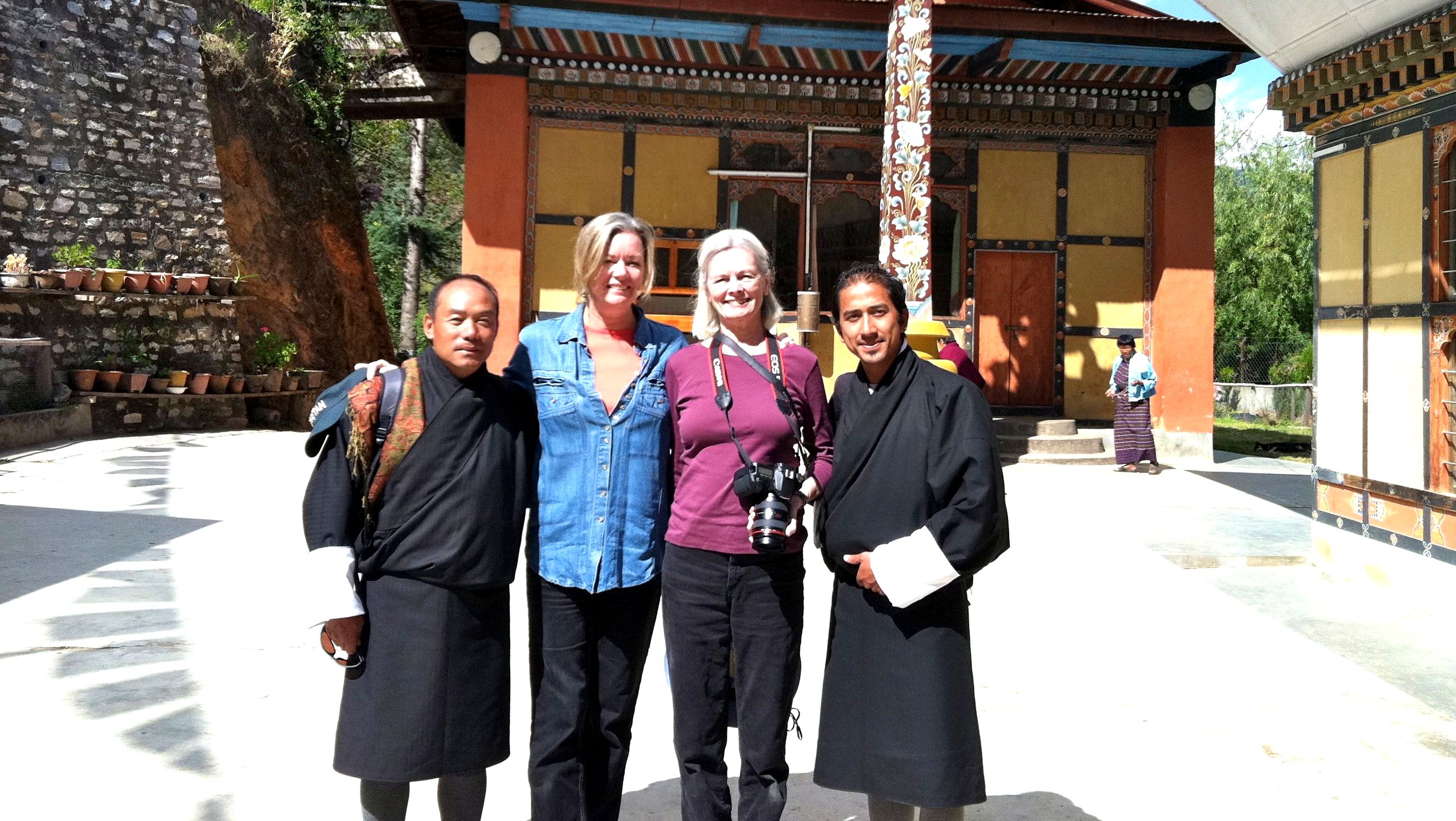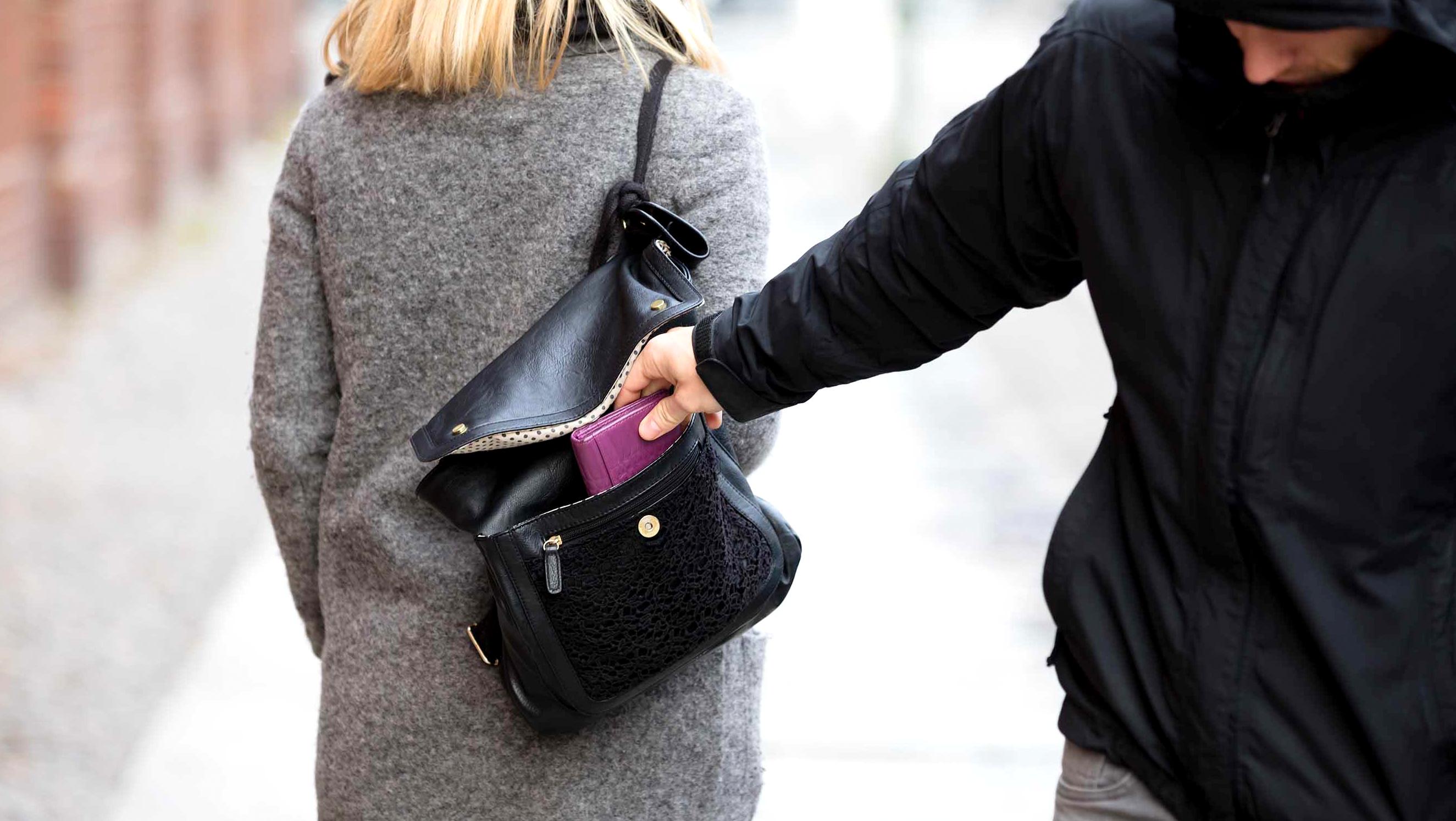In Bhutan, a country known for its serene landscapes and rich cultural heritage, tourists can sometimes fall prey to various scams. Luxury Holidays Nepal highlights several key types of scams that visitors should be aware of to ensure a safe and enjoyable experience. These include Tour Package Scams, where travelers might encounter deceitful operators offering alluring yet fraudulent travel deals. Another common issue is Fake Monastery Donations, with scammers exploiting the religious sentiments of tourists. Overpriced Goods and Services are also a concern, with visitors often charged exorbitant rates for souvenirs, taxi rides, or dining. Awareness and caution are essential in navigating these potential pitfalls, ensuring that the journey through Bhutan remains as authentic and enriching as the country itself.
We pride ourselves on being a leading authority in guiding travelers through the intricacies of planning a trip to Bhutan, including navigating potential scams. Our expertise and local knowledge equip us to effectively inform our clients about the various scams they may encounter, such as Tour Package Scams, Fake Monastery Donations, and Overpriced Goods and Services. We ensure that our clients are well-prepared and informed, making their journey through Bhutan not only memorable but also secure and hassle-free. Choosing Luxury Holidays Nepal means opting for a travel partner that not only understands the beauty and culture of Bhutan but also prioritizes the safety and authenticity of your travel experience.
Fake Monastery Donations
In Bhutan, a country deeply rooted in Buddhist traditions, monasteries are revered places of worship and cultural significance. Unfortunately, this reverence can sometimes be exploited by scammers through Fake Monastery Donations. Understanding this scam is crucial for tourists wishing to respect local customs without falling prey to fraud.
What are Fake Monastery Donation Scams?
Illegitimate Fundraising
- Scammers pose as monks or religious officials, soliciting donations for monasteries or religious causes.
- These individuals may set up booths or approach tourists in or near actual monasteries.
Emotional Appeal
- Scammers often use emotional stories or the spiritual significance of the monastery to appeal to the generosity of tourists.
- They might promise blessings or good karma in exchange for donations.
Counterfeit Receipts
- In some cases, scammers provide fake receipts, making the donation appear legitimate.
- These receipts hold no actual value and are not recognized by any monastery or religious institution.
Pressure Tactics
- Tourists may face pressure or guilt-tripping tactics to make them feel obligated to donate.
- Scammers can be persistent, making it uncomfortable for tourists to decline.
How to Avoid Fake Monastery Donation Scams
Verify Authenticity
- If approached for donations, politely inquire about the authenticity and seek verification from the monastery itself.
- Most legitimate monasteries have designated donation boxes or officials handling contributions.
Research and Awareness
- Before visiting, research the customs and practices related to monastery donations in Bhutan.
- Being aware of the standard procedures helps in identifying potential scams.
Decline Politely
- If you're unsure of the legitimacy, it’s okay to decline the donation request politely.
- A genuine religious practitioner will respect your decision.
Donate Directly to Monasteries
- To ensure your donations reach the intended recipients, donate directly to the monasteries.
- Official donation boxes are usually available within the monastery premises.
Consult with our Tour Guide
- If you're traveling with a tour operator like Luxury Holidays Nepal Pvt. Ltd., consult with our guide about donations.
- We will provide guidance on appropriate practices and help identify legitimate donation requests.
Being aware of the Fake Monastery Donation scam is important while exploring the spiritual heritage of Bhutan. While it's commendable to support local religious institutions, ensuring that your generosity is directed to the right place is equally crucial. Always approach such situations with a respectful but cautious mindset to fully embrace the spiritual experience Bhutan offers.
Overpriced Goods and Services
Bhutan, with its rich cultural heritage and unique handicrafts, offers a myriad of shopping experiences for tourists. However, the allure of these unique items can sometimes lead to encounters with overpriced goods and services. Understanding and identifying such scams is crucial for visitors who wish to enjoy their shopping experience in Bhutan without being overcharged.

Characteristics of Overpriced Goods and Services Scams
Targeting Tourists
- Vendors may inflate prices significantly when they recognize a customer as a tourist, often because tourists are perceived as less aware of the local pricing.
Lack of Price Tags
- Goods in some shops, especially in tourist-heavy areas, might not have clear price tags, leading to arbitrary pricing based on the vendor's assessment of what the tourist might be willing to pay.
Aggressive Sales Tactics
- Some sellers may employ high-pressure sales tactics, urging tourists to buy quickly without comparing prices or considering the purchase.
Misrepresentation of Quality
- Products, especially handicrafts and souvenirs, might be presented as higher quality or more unique than they actually are to justify the high price.
How to Avoid Overpriced Goods and Services Scams
Research Market Prices
- Before shopping, research the average prices for common goods and services in Bhutan.
- This knowledge provides a baseline for what is reasonable and helps in negotiating.
Bargain and Compare Prices
- Don't hesitate to bargain, as it is a common practice in many Bhutanese markets.
- Compare prices at different shops before making a purchase, especially for more expensive items.
Shop at Reputable Stores
- Prefer shopping at stores recommended by trusted sources or those known for fixed pricing.
- Government-run or certified stores are often reliable for authentic and reasonably priced goods.
Be Wary of Unsolicited Approaches
- If approached by street vendors or touts offering deals that seem too good to be true, it’s advisable to be cautious.
Seek Advice from Locals or Guides
- Our tour guide or local acquaintances can provide valuable insights into fair pricing and reputable places to shop.
- Consulting with them can prevent you from falling for overpriced items.
While Bhutan offers a treasure trove of beautiful souvenirs and services, being mindful of overpricing scams is essential. As a traveler, always approach such transactions with a balance of respect for local merchants and awareness of the value of your purchases. By doing so, you can enjoy the rich shopping experiences Bhutan has to offer without the risk of being overcharged.
Unauthorized Tour Operators or Fake Guides
When traveling to the culturally rich and scenic Bhutan, it's important for tourists to be aware of scams involving unauthorized tour operators or fake guides. These individuals or entities may offer tour services without proper authorization, qualifications, or knowledge, potentially leading to a compromised and unsafe travel experience.

Nature of Unauthorized Tour Operator or Fake Guide Scams
Lack of Proper Licensing
- Unauthorized operators and fake guides often operate without the necessary licenses and permits required by Bhutanese law.
- They might not adhere to the safety, quality, and ethical standards set by the tourism authorities.
Misleading Information and Inadequate Services
- These operators may provide incorrect or misleading information about Bhutan's history, culture, and places of interest.
- The quality of the tours offered can be substandard, not aligning with the expectations set during booking.
Overcharging and Hidden Costs
- Tourists may be charged exorbitant prices, often coupled with hidden fees that were not disclosed upfront.
- The actual value and quality of the services provided do not match the high costs.
Safety Risks
- Engaging with unauthorized operators or guides can lead to safety risks, as they may not follow standard safety protocols.
- This is particularly concerning for activities like trekking or visiting remote locations.
How to Avoid These Scams
Verify Credentials
- Always check for a guide's or operator's official identification and license. In Bhutan, genuine tour guides and operators are required to be registered with the Tourism Council of Bhutan.
Book Through Reputable Agencies
- Use well-known and reputable travel agencies, like Luxury Holidays Nepal Pvt. Ltd., for booking tours.
- We ensure our guides and operators are authorized and meet the necessary standards.
Be Wary of Unsolicited Offers
- Exercise caution if approached by individuals offering guiding services spontaneously, especially at tourist spots or hotels.
Agree on Clear Terms
- Before starting a tour, ensure that all terms, including costs, itinerary, and services included, are clearly agreed upon and understood.
Navigating through the array of tour options in Bhutan requires a discerning approach to avoid scams involving unauthorized operators or fake guides. By doing your due diligence and opting for verified and reputable services, you can ensure a safe, authentic, and enriching travel experience in the beautiful Kingdom of Bhutan.
Counterfeit Products
Bhutan's markets and shops, while offering an array of authentic and traditional products, can also be a breeding ground for counterfeit goods. These products, often imitations of high-quality merchandise, are sold to unsuspecting tourists at prices that do not reflect their actual worth. Understanding and recognizing counterfeit product scams is essential for visitors who wish to take home genuine Bhutanese souvenirs and goods.
Nature of Counterfeit Product Scams
Imitations of Traditional Handicrafts
- Scammers may sell fake versions of traditional Bhutanese handicrafts, including textiles, jewelry, and wooden items, claiming them to be authentic.
- These imitations are often of inferior quality and do not represent the true craftsmanship of Bhutanese artisans.
Branded Goods
- Counterfeit versions of popular international brands might be offered at significantly lower prices.
- These products often lack the quality and durability of genuine articles.
Misleading Labels
- Products might be labeled as 'Made in Bhutan' or with similar tags to create an illusion of authenticity.
- In reality, these products could be mass-produced in other countries.
How to Avoid Counterfeit Product Scams
Purchase from Reputable Sources
- Buy products from established stores, government-run shops, or certified local artisans.
- These places are more likely to sell genuine Bhutanese merchandise.
Examine Quality and Craftsmanship
- Authentic Bhutanese handicrafts are known for their quality and intricate detail.
- Examine products closely for signs of genuine craftsmanship.
Be Skeptical of Too-Good-to-Be-True Deals
- If a deal seems too good to be true, especially for branded items, it likely is.
- Genuine quality products are usually priced accordingly.
Educate Yourself about Bhutanese Products
- Learn about the characteristics of authentic Bhutanese crafts and goods.
- This knowledge can help distinguish between real and counterfeit items.
Consult with our Tour Guide
- If traveling with a tour company like Luxury Holidays Nepal Pvt. Ltd., seek advice from our guide.
- They can provide insights into where to find authentic products and what to look for.
Navigating the markets of Bhutan requires a discerning eye to avoid counterfeit products. By being informed and cautious, you can ensure that your purchases are authentic, supporting the genuine local artisans and preserving the rich cultural heritage of Bhutan. Remember, buying authentic not only gives you a true piece of Bhutanese culture but also contributes positively to the local economy.
Pickpocketing and Theft
In Bhutan, like in many tourist destinations, Pickpocketing and Theft can be a concern, particularly in crowded areas or tourist hotspots. Here are some key points to be aware of:

-
Crowded Places: Pickpockets often target crowded areas such as markets, festivals, bus stations, and popular tourist attractions where tourists are likely to be distracted.
-
Valuables on Display: Carrying expensive gadgets, and jewelry, or showing large amounts of cash can attract the attention of thieves.
-
Unattended Belongings: Leaving bags or valuables unattended in public places, restaurants, or in hotel lobbies can lead to theft.
-
Distraction Techniques: Thieves may work in groups using distraction techniques. One might engage you in conversation or ask for help, while another steals your belongings.
-
Transport Theft: In buses or taxis, keeping belongings in overhead racks or out of sight can prevent theft.
To mitigate the risk of pickpocketing and theft:
- Stay Alert: Be particularly vigilant in crowded areas and keep an eye on your belongings.
- Secure Your Valuables: Use money belts or hidden pouches for important documents and cash. Avoid displaying expensive items.
- Keep Belongings Close: Always carry your bags and backpacks in a secure manner, preferably in front of you in crowded places.
- Be Cautious with Strangers: While Bhutanese people are known for their friendliness, be cautious if strangers become overly familiar or intrusive.
- Use Hotel Safes: Store valuables in hotel safes when available.
By taking these precautions, tourists can enjoy their visit to Bhutan while minimizing the risk of falling victim to pickpocketing or theft.
While Bhutan is largely a safe and welcoming destination, visitors should remain vigilant against possible scams such as Fake Monastery Donations, Overpriced Goods and Services, and Pickpocketing and Theft. By being informed and cautious, travelers can safeguard themselves from these pitfalls. It's essential to conduct thorough research, use reputable services, and stay alert in crowded or unfamiliar settings. With these precautions, one can fully embrace the rich cultural and natural beauty of Bhutan, ensuring a memorable and authentic travel experience.
FAQs: Possible Scams in Bhutan
Q: How can I avoid fake monastery donation scams?
A: Be cautious of aggressive solicitation for donations and donate directly at official monastery offices or recognized donation boxes. Always feel free to politely decline if you're uncomfortable.
Q: What should I be aware of when buying souvenirs in Bhutan?
A: Be cautious of overpriced goods. It’s advisable to compare prices at different shops and purchase from reputable, government-approved handicraft stores.
Q: Is pickpocketing a significant issue in Bhutan?
A: Pickpocketing is not rampant in Bhutan, but it’s wise to be vigilant in crowded places, secure your valuables, and not leave your belongings unattended.
Q: Are there any specific scams targeting foreign tourists in Bhutan?
A: Besides the general scams like overcharging and fake donations, tourists should be cautious of phishing scams and fraudulent online transactions, especially involving travel bookings.
Q: What should I do if I suspect I've been scammed in Bhutan?
A: If you believe you’ve been scammed, report the incident to the local police. For financial scams involving credit cards or online transactions, contact your bank immediately.
Q: Is it safe to use credit cards in Bhutan?
A: Credit cards are generally safe to use in established businesses in Bhutan, but be cautious with card details, especially in less reputable places or when using ATMs.
If you need any further information, please contact us by email: at [email protected], Phone: at +977- 985 100 5129 (WhatsApp)




